Korean cinema has emerged as a major global cultural force, captivating audiences around the world. In Vietnam, Korean films consistently top viewership charts across theaters, TV, and VOD platforms. The widespread popularity of Korean storytelling is undeniable.
On June 30, 2025, the forum “Korean Cinema: International Success and Industrial Development Experience” was held as part of the 3rd Da Nang Asian Film Festival (DANAFF III). The event gathered international, Korean, and Vietnamese scholars, film distributors, theater networks, and film schools from Korea, the U.S., and Vietnam for in-depth discussions.
Korean Ambassador to Vietnam Choi Young Sam addressed the audience, noting, “Today’s forum is a special opportunity to share insights from the international expansion of Korean cinema and explore a common future with Vietnam’s burgeoning film sector.”
He emphasized that Korea’s film industry became a core pillar of the Korean cultural wave (K-culture) not only through commercialization but also through passionate creativity and robust global engagement via film festivals.
“Vietnamese cinema has recently been recognized for its potential, and I believe DANAFF will be crucial in its growth,” he added.
Dr. Ngo Phuong Lan, Director of DANAFF, said the forum came at a pivotal time for Vietnam’s ambitions to develop its film industry. “Korean cinema is a model for us and the region - its global expansion wasn’t instant but came from years of policy support, visionary management, and the dedication of filmmakers,” she said.
Reflecting on the selection of Korean spotlight films at the festival, she noted a thematic and stylistic parallel between classic Vietnamese and 1960s Korean films. “With Hallyu’s rise and Korea’s global cinematic boom, we are reminded that success involves both artistic excellence and market strength,” she remarked.
DANAFF III honored Korean film legend Im Kwon Taek with a Lifetime Achievement Award. His culturally rich and stylistically distinct works have inspired generations and played a role in South Korea’s artistic and democratic transformations since the 1980s.
The forum also featured perspectives from Vietnamese and international scholars. Dr. Nguyen Hoang Quy Ha (University of North Carolina Wilmington) drew comparisons between Vietnam’s The Retired General (1988) and Korea’s Aimless Bullet (1961), both depicting harsh postwar realities. Dr. Dao Le Na (Vietnam National University, HCMC) analyzed representations of women and family in postwar Korean cinema.
Lectures also addressed Korea’s 1990s film renaissance, where directors used cinema not just for art but as tools to tackle social and cultural themes. Scholars like Dr. Ho Khanh Van and Dr. Nguyen Phuong Khanh analyzed films such as The Day a Pig Fell into a Well and Save the Green Planet! as emblematic of this evolution.
Producer Park Jae Mo, President of the Korea Character Licensing Industry Association (KOCA), provided a historical overview of Korea’s industry rise, while Vietnamese director Phan Gia Nhat Linh shared practical experiences remaking Korean films, including Sweet 20.
During the panel discussion, DANAFF welcomed the return of Kim Dong Ho, former chairman of the Busan International Film Festival, alongside directors Kim Hong Joon, Kim Han Min, and Vietnamese producer Ngo Thi Bich Hanh, among others.
Dr. Ngo Phuong Lan concluded that the workshop delivered substantial academic value and artistic insight, deepening the understanding of Korean cinema’s journey and offering inspiration for Vietnam’s cinematic aspirations.
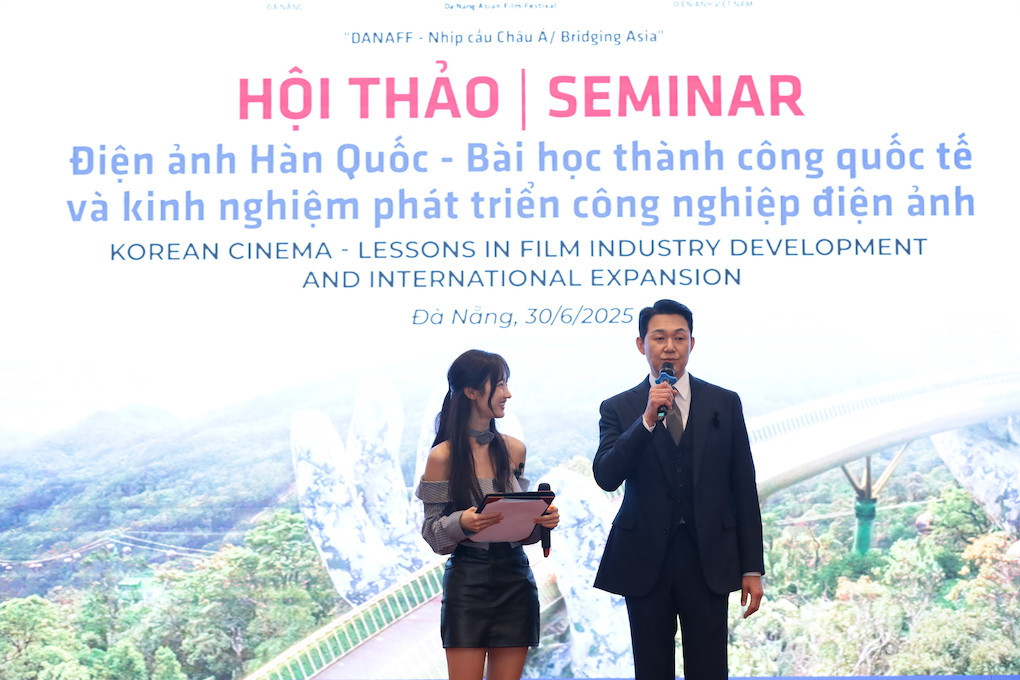
Korean actor Park Sung Woong attends the forum.
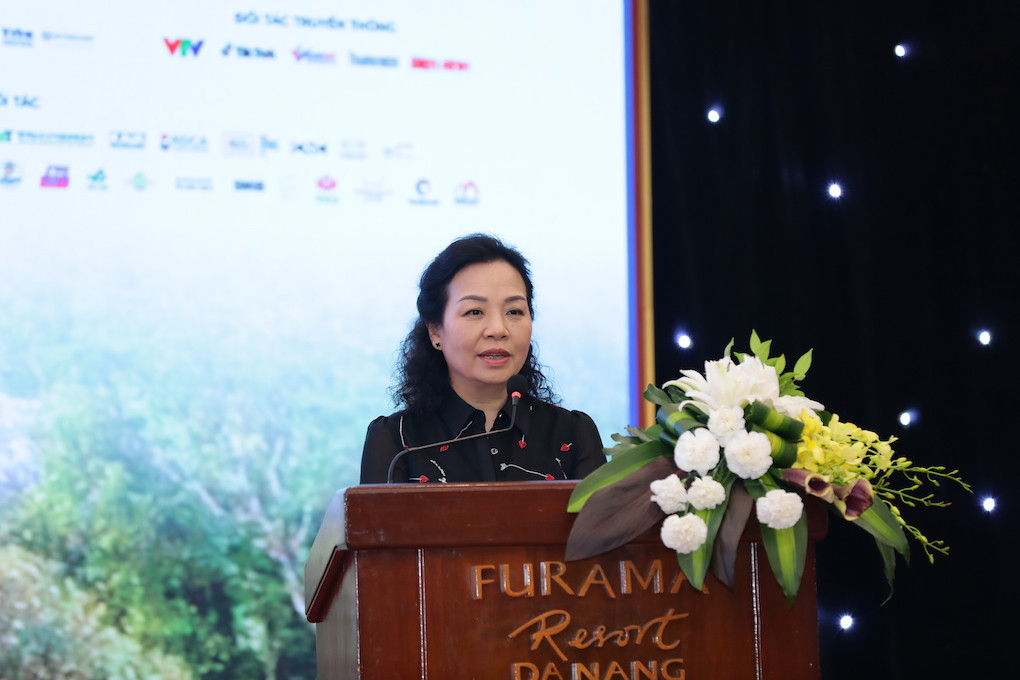
Dr. Ngo Phuong Lan outlines the forum’s purpose and vision for Vietnam’s film industry.
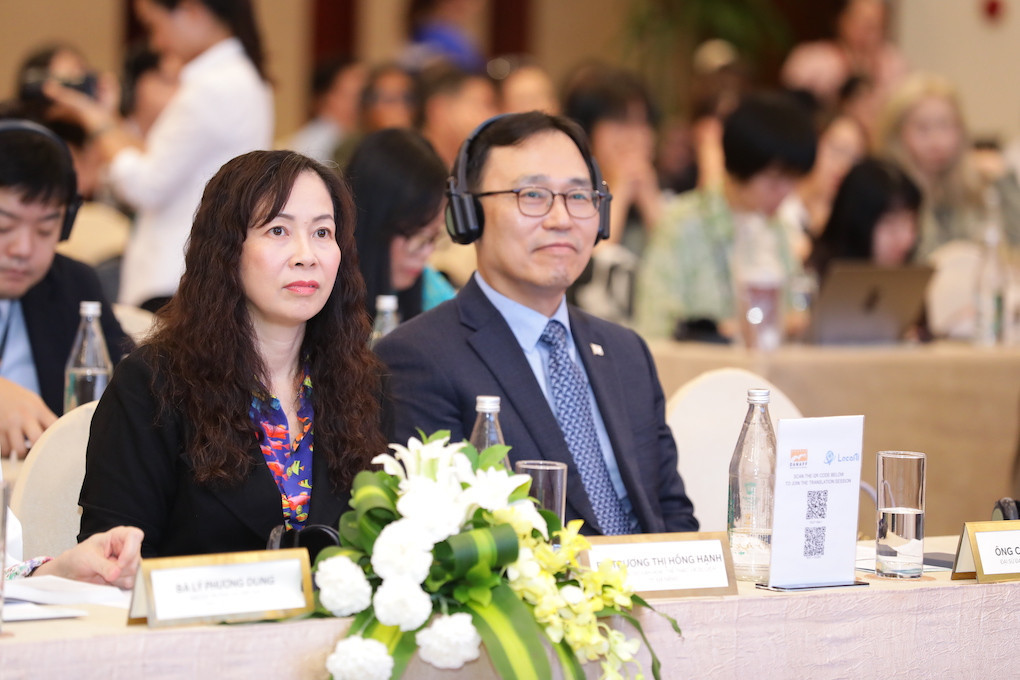
Ambassador Choi Young Sam at the DANAFF III workshop.
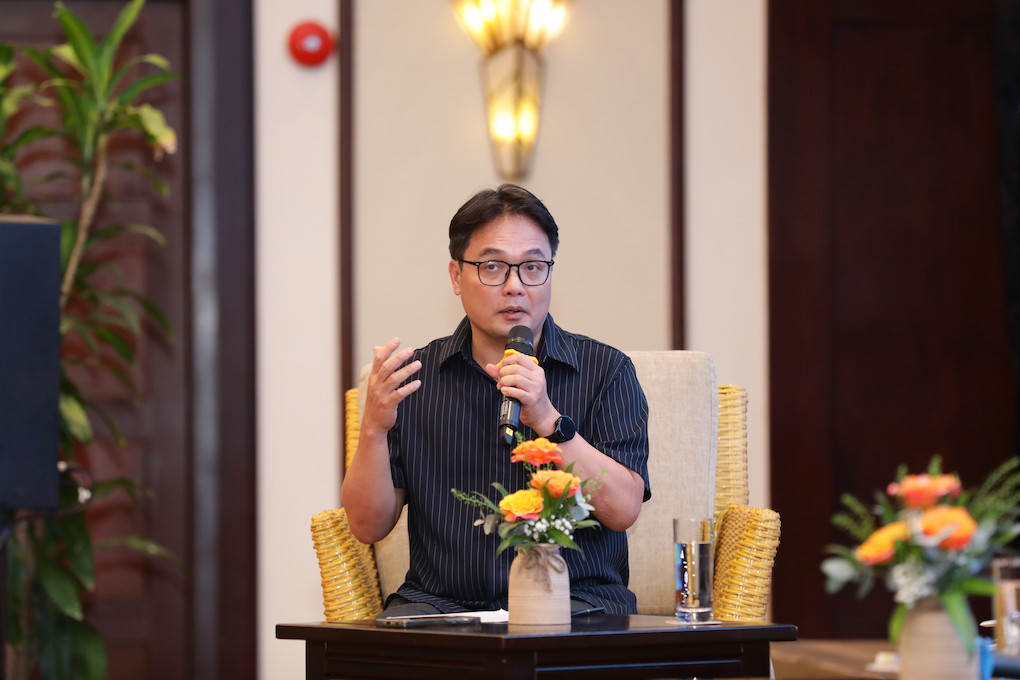
Director Phan Dang Di moderates a scholarly session on Korean film aesthetics.
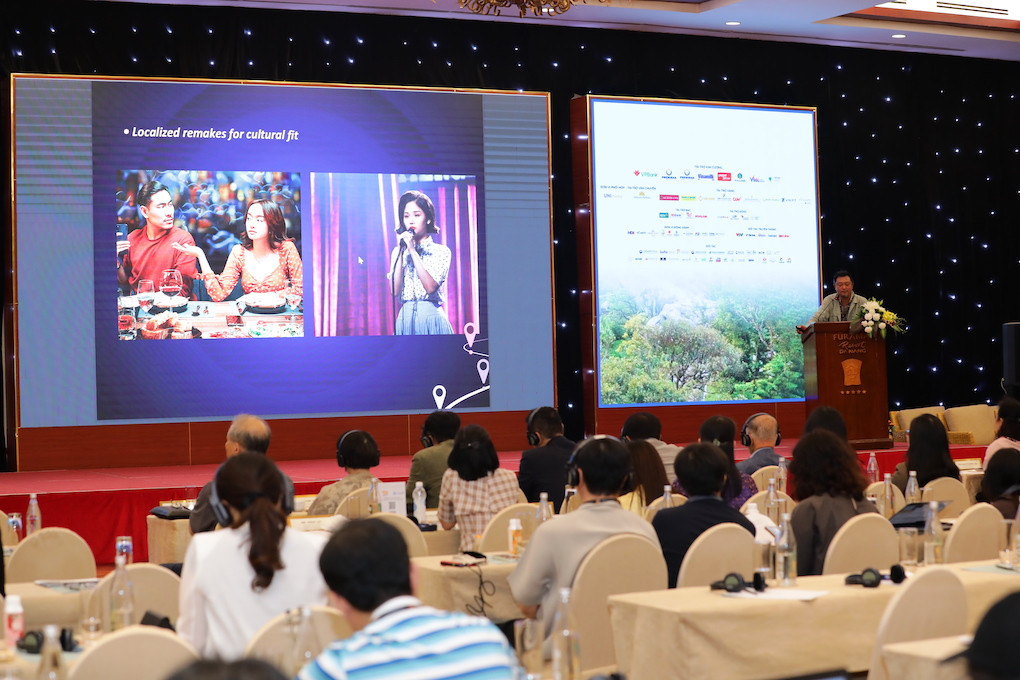
Director Phan Gia Nhat Linh shares real-world insights from Korean film remakes.